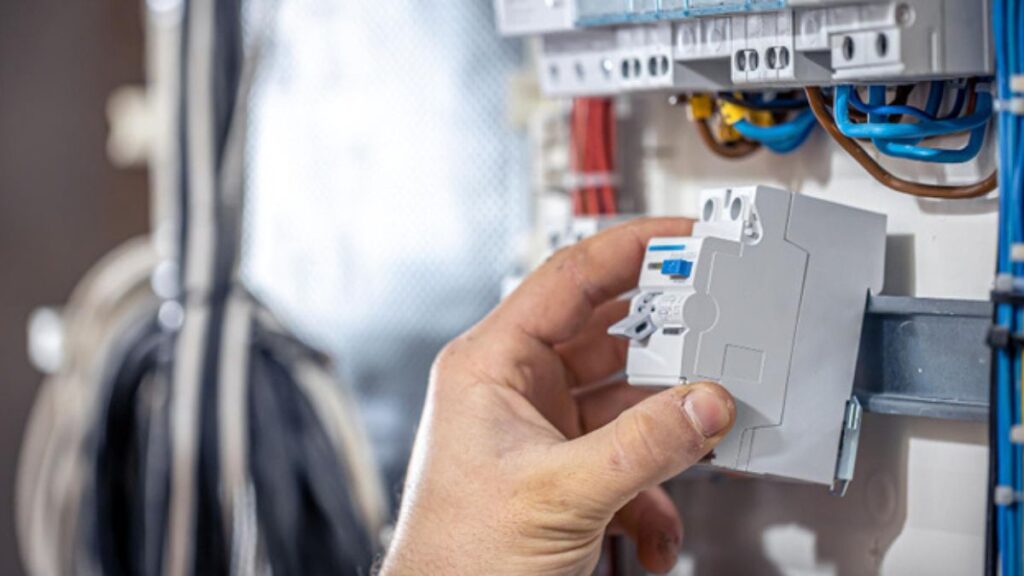Modern households are far more demanding regarding electrical usage than homes built just a few decades ago. We will explore how your home’s electrical panel acts as the core of its entire electrical system and why upgrading it may be necessary to support the increasing number of appliances, gadgets, and systems used daily. If your home was constructed before the 1980s, it likely has an outdated panel with lower amperage, often around 60 or 100 amps.
Today’s average home functions more comfortably on 200 amps or more. This difference matters because older panels weren’t designed to power multiple large appliances, smart home systems, HVAC upgrades, electric vehicles, and other high-load devices simultaneously. Running a dishwasher, clothes dryer, and computer system simultaneously shouldn’t trip a breaker—but it might if your panel is maxed out. An upgrade ensures that every room and device gets consistent power without flickering lights or frequent resets.
Keeping Up with Modern Power Demands
Warning Signs You Shouldn’t Ignore
Your home may give subtle clues that its electrical panel is under pressure. Suppose you notice breakers tripping frequently, appliances running less efficiently, or lights dimming unexpectedly when you plug in a vacuum or microwave. In that case, these are signs that your panel can no longer distribute electricity evenly. An electrical panel’s job is to manage the safe flow of electricity into your home, separating it into circuits and regulating current through each one. When the system is overloaded or outdated, it may not be able to protect your home correctly.
In some cases, homeowners with older fuse boxes may find it challenging to find replacement fuses or may unknowingly insert the wrong type—leading to dangerous overheating. Older panel brands are also known for malfunctioning or lacking modern safety mechanisms. If your home still relies on one of these, an upgrade is not only beneficial—it’s critical. For additional issues related to panel performance, see here for common symptoms that suggest a replacement may be overdue.
Supporting Major Home Renovations or Additions
Upgrading your electrical panel becomes even more critical when planning a renovation or home addition. Any project that adds square footage or increases the number of outlets, lights, or appliances will require additional power. For example, converting an attic into a bedroom, adding a finished basement, or building an outdoor kitchen contribute to the electrical load your panel must handle. A small, outdated panel will struggle to support new wiring and circuit installations. Without an upgrade, you risk future complications, including overloaded circuits or failed inspections.
Most local codes require that homeowners update electrical systems as part of large renovation projects to meet current safety standards. Even if your project seems minor, like upgrading your kitchen with new appliances, the cumulative demand on your electrical system can warrant a panel upgrade. Planning for this early in your project can save money and prevent delays, especially when contractors and inspectors are involved.
Preparing for Energy-Efficient and Smart Technology
As energy-efficient technology and smart systems become more common in households, the demand for electrical infrastructure continues to evolve. Devices like tankless water heaters, solar panel installations, smart thermostats, and electric vehicle chargers contribute to the power draw. Though these upgrades can reduce energy usage over time, they often require a modern panel to support their functionality. Older electrical panels were not designed with renewable energy input or smart monitoring in mind.
Many new systems integrate with your home’s circuits to track energy usage or automate responses to peak demand, which can only be done reliably if the panel is equipped to communicate with them. Additionally, electric vehicle charging stations typically need a dedicated high-voltage circuit—something most older panels simply don’t have room for. Investing in a panel upgrade ensures that your home is compatible with these technologies and can take advantage of their energy-saving features in the long term.
Improving Safety and Long-Term Value
Safety is one of the most important reasons to upgrade your electrical panel. Outdated panels can become a fire risk when overloaded, particularly if wiring insulation begins to degrade or connections become loose. Modern panels have improved safety features such as arc fault protection, ground fault circuit interrupters, and circuit labels, making maintenance safer and more transparent. These features reduce the risk of electrical fires, electrocution, or costly appliance damage.
From a real estate perspective, an upgraded electrical panel adds value to your home and gives buyers confidence that the house is ready to handle future upgrades. Insurance companies also consider panel conditions determining rates or eligibility. Some may refuse coverage for homes with outdated or unsafe panels. A modern panel upgrade is an investment that pays off both in peace of mind and in market appeal. It assures your home is ready for whatever technological or lifestyle changes the future brings.
Your home’s electrical panel is more than a box of breakers—it’s the control hub for your entire electrical system. As homes evolve to include more devices, energy-saving systems, and smart technologies, an outdated panel can limit performance, create hazards, and stall upgrades. Whether expanding your living space, installing modern appliances, or dealing with tripped breakers and inconsistent power, a panel upgrade offers lasting solutions. It ensures smoother daily operation and prepares your home for future demands without compromising safety. With the proper planning and professional installation, a new electrical panel brings stability, efficiency, and room to grow—so your home can keep up with your needs today and tomorrow.







